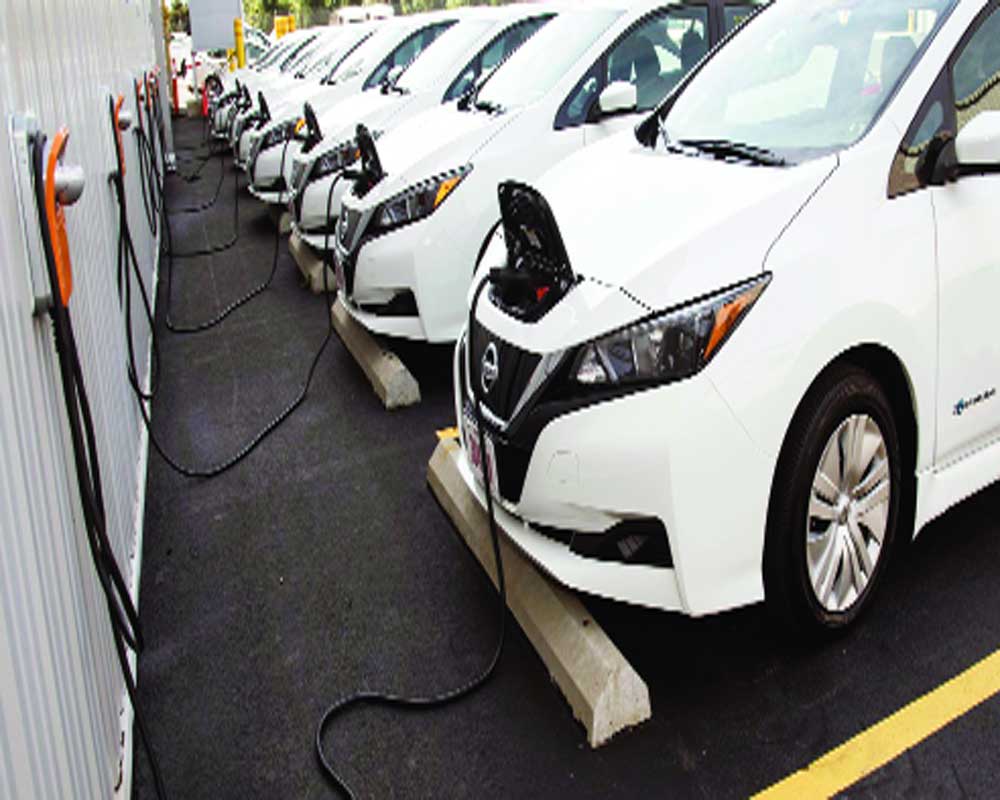Electric cars have come a long way in India but they still cost far too much for a majority of Indians. For now
First things first. We have to keep in mind that we live in a country where the people who are in power believe that cars are a luxury item. That was made clear by Prime Minister Narendra Modi the other day when he said that 1.5 crore luxury cars have been sold in India over the past five years. Now, while I believe WagonR and Santro are fairly nice cars, BMW is not, because as much as the i3 tries to be basic, it really isn’t.
Luxury or premium cars in my book are cars that cost upwards of Rs 30 lakh, which would include the higher-end of mass-market brands. That means cars like the Hyundai Santa Fe and, of course, all the German premium brands as well as Lexus, Volvo and the like. The figure for sales of such cars would at best be around 250,000 over the past five years. Because the total sale of cars in India is 1.5 crore. So now we know, according to the government cars are a symbol of bourgeoise, the moment you move to four wheels, whether it is a Maruti Alto or an Audi, you are a member of the entitled classes. Not for politicians and bureaucrats, of course, because they need cars to tell us how bad we are for not paying taxes.
Anyway, back to the topic. Which again involves excise duties, Customs and taxes again. The fact is that electric cars are far too expensive for mass adoption in a country like India. The two electric SUVs that have been launched so far, the Hyundai Kona and the MG ZS EV, are both cars that can definitely be lived with on a daily basis without any worry about range. If you live in a city like Delhi where you have parking, and if you can afford a Rs 25 lakh car you possibly do have parking, charging is not a problem. With ranges of 300 kilometres, and the average daily commute being 25-30 kilometres, you will easily survive a week on a single charge. As for long-distance driving, well, Delhi-Lucknow may be a bit of a stretch but Agra, Chandigarh, Dehradun and Jaipur should be easily achievable as long as you have planned for a charging point at your destination. There are few, if any, public chargers outside Delhi and even those in Delhi are often not compatible with all cars as I have discovered in the past. But one assumes that will change going forward.
But until it changes and until cars like the Kona and ZE EV will make no sense whatsoever. Cars with more limited ranges such as the Tata Nexon EV and the Mahindra e-Verito are entering governmental and taxi fleets in Delhi, the latter being a bit bizarre given the usage of taxis over long distances and without any fast-charging infrastructure. That is because decent range costs money and battery costs make up the bulk of the cost of an electric car. Without any battery manufacturing in India, all batteries are imported from China and as the last couple of weeks have shown, our neighbour is integral to the global supply chain. As China gets the flu, even India’s automotive industry will sneeze. That is just for some small components. Can you imagine what will happen if unrestricted imports of batteries are allowed from China? Indian manufacturing and jobs will be hollowed out. India needs to secure lithium resources and establish battery factories and work towards reducing costs of electric cars.
There is little doubt that electric vehicles are the future of mobility across the world but we should not make the assumption that the world is equal. In the United States, a $50,000 car is a standard family car and the Tesla Model 3 serves that purpose but the optics of a Rs 35 lakh car in India, possibly Rs 70 lakh after Customs duties particularly with politicians railing against the rich, won’t work, right? India has to take smaller, more sustainable steps towards electrification. Even for public transport, forcing electrification down the throats of transport bodies when they do not have enough buses to transport the people they need to now, is counter-productive. There is far too much misinformation about the benefits of electrification of vehicles out there. The plain and simple fact is that electric vehicles are expensive, and it does not make sense for India at the current time and the current economic environment to move to electric cars and buses. Hybrids, where smaller engines are coupled with small batteries, make much more sense in the next decade in India. And in that time we should work towards improving affordability and growing our economy so as to afford electric cars and make them in India.
In the rush towards electric vehicles, we should really not lose sight of the bigger picture.


























